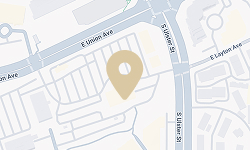Denver Common Law Divorce Attorneys
Family Law Attorneys Representing Residents of Denver and Surrounding Areas
Common law marriages can be tricky to establish and often are even more complicated to dissolve. If you are contemplating a common law divorce, you need to seek the help of a Denver common law divorce attorney who has experience in this area of law. At Plog & Stein, P.C., we can consider the facts of your situation to determine your status as a common law spouse and help you understand your legal rights and responsibilities in the event of a divorce. If you are pursuing a common law divorce, we can advocate aggressively for your interests.
Pursuing a Common Law Divorce in Colorado
Colorado is one of the few states that recognize common law marriages. A common law marriage is established by the mutual consent of two parties to live as husband and wife. In order for a common law marriage to be recognized in Colorado, the following conditions must be met:
- Both parties must be over the age of 18.
- There must be a mutual and open assumption of a marital relationship, meaning that both spouses hold themselves out to the public to be husband and wife.
- The parties must live together as husband and wife after agreeing between themselves that they are husband and wife.
In addition, to be a valid common law marriage, Colorado law must not prohibit it. Prohibited marriages include those involving bigamy (in which one of the parties is married at the time of the marriage) or incest (a marriage between close relatives).
As is the case with statutory marriage, divorce or death are the only two ways to end a common law marriage. There is no specific process of dissolution outlined for common law spouses. As a result, if the court finds that a legally recognized common law marriage exists, the common law divorce will follow Colorado’s established dissolution of marriage laws. In other words, people in a common law marriage need to go through the Colorado divorce process in the same way as couples that are formally married. This means that questions of parental responsibility, child support, division of marital property, and spousal maintenance would all need to be decided.
How to Prove a Common Law Marriage
When a common law spouse files for divorce, the first question that may need to be answered is whether a common law marriage actually existed. Though the filing spouse may claim the existence of a common law marriage, the other party has the absolute right to challenge such. When the issue of whether the marriage existed is contested, the first legal skirmish will be an evidentiary hearing, at which the existence of the marriage will be resolved. If you are served with divorce papers and do not believe you were common law married, our Denver common law divorce attorneys are ready to challenge the claim and assert your rights. With limited time frames in which to dispute the marriage, contacting a lawyer quickly is advised.
A common law marriage can be evidenced by factors including joint tax returns, insurance paperwork, using a partner’s last name, referring to each other as husband and wife, card and other correspondence identifying the relationship, naming each other in insurance documents or other benefits paperwork, and how the parties hold themselves out to be in public, including on social media. None of these pieces of evidence on its own would be enough to establish a common law marriage. However, a combination of these factors can be vital in painting the bigger picture.
It is important to note that if either spouse in a common law marriage wants to get remarried in the future, the later marriage could be deemed invalid if the common law marriage is not dissolved first.
Seek Assistance from a Common Law Divorce Lawyers in Denver
If you need to dissolve your common law marriage, we can help. At Plog & Stein, P.C., our skilled divorce attorneys understand this distinctive and often complex area of family law. With over 50 years of combined legal experience, we are here to make sure that you are treated fairly throughout the process. We represent people pursuing a divorce in Denver, Aurora, Centennial, Highlands Ranch, Castle Rock, and other cities in Denver, Douglas, and Arapahoe Counties. For more information about your legal rights and options, call us at (303) 781-0322 or contact us online.









